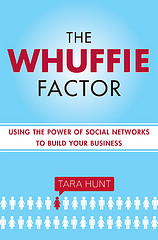First, you never know when hiring someone if their personality is going to be a good mix for your workplace.
Sure, someone may have a stellar resume and come across great during the interview. That said what happens when they end up working with dozens or more of your staff on a daily basis? Can you guarantee that harmony is going to follow suit?
In hiring and retaining your workers, you want to do all you can to make things fit the first time around.
So, are you hiring the right people for the job?
Put Different Resources to Work
So that you have improved odds of getting the right people more times than not, remember a few pointers:
- Resources – Having good human resources consulting can help you hire the right folks. For example, are you following all the necessary human resources procedures? It only takes one slip-up to put your company in jeopardy of a lawsuit. By working with an H.R. expert or experts, you lessen the chances of making gaffes that can prove costly.
- Interviews – Some companies use phone interviews before an actual face-to-face interview. Does that sound like your company? Those phones interviews can help weed out some candidates that are likely not a good fit for your office. With face-to-face interviews, not only listen to what candidates say, but watch them. Do they seem comfortable talking to you or your staff? Is their personality one that would at least now appear to be a good fit for your workplace? Are they anxious to be a team player and contribute from day one if hired? Watching and listening are two of the most important aspects of any interview.
- Goals – What goals do you have in mind when it comes to hiring more employees? Some companies hire due to the fact they have a manpower shortage. Others will hire to fill an important chair at the company. Know ahead of time why you need to add one or more individuals to your payroll. Doing so will give you more clarity and improved chances of avoiding a revolving door.
Knowing When It is Time to Pull the Plug on a Worker
Knowing when and then having to fire someone is something most company heads do not enjoy. That said it is all but unavoidable in running a company.
To make the matter clearer on you and your team, look for these signs to know when it is time to pull the plug on a worker:
- Employee is not doing the job expected of them
- Employee is late for work on regular basis or abuses breaks
- Employee does not get along with others in the office
- Employee speaks badly about the company and even its customers
Although training new folks is costly and time-consuming, you do not want to keep someone around who is a bad fit.
In taking time to see if you are hiring the right people for the job, make sure your human resource person or team is quite involved.
Photo credit: Pixabay
About the Author: Dave Thomas writes about business topics on the web.



